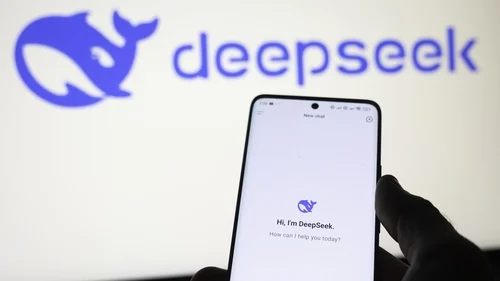Amid mounting international worries over the company’s privacy policies, South Korea has accused Chinese artificial intelligence startup DeepSeek of exchanging user data with TikTok’s Beijing-based owner, ByteDance.
Due to privacy concerns, South Korea has now joined Australia, Taiwan, and a number of other nations in banning DeepSeek on government devices. Citing issues with third-party data transfers and a lack of openness in the company’s privacy practices, the PIPC declared that DeepSeek had violated South Korean privacy laws.
Read also: DeepSeek’s emergence worries Trump, serves as wakeup call to U.S. tech companies
According to a statement provided to Yonhap News Agency, the Personal Information Protection Commission (PIPC) said that it had discovered communication between DeepSeek and ByteDance but had not yet verified the type and volume of data transferred.
The disclosure comes after DeepSeek was taken down from the Google and Apple app stores by South Korea over the weekend due to data security concerns. The AI chatbot had been downloaded more than a million times nationwide prior to its takedown. DeepSeek is no longer available for new downloads, but users can still access it through a web browser.
After asserting that its AI model was developed at a fraction of the price of American rivals like OpenAI’s ChatGPT, DeepSeek attracted international attention in January. Due to the market’s expectation of fresh competition from AI, the disclosure caused a sell-off in global tech equities. But since then, a number of nations have voiced concerns regarding DeepSeek’s use of user data.
Privacy concerns over users’ data sharing between DeepSeek and ByteDance
According to a report released in February by the U.S. cybersecurity firm Security Scorecard, DeepSeek appeared to be closely linked with ByteDance’s analytics and performance monitoring infrastructure and contained “multiple direct references to ByteDance-owned services.”
The investigation also indicated that some data transmissions were connected to Chinese state-owned organisations, and that user behaviour and device metadata were probably being routed to ByteDance servers.
DeepSeek has admitted to its failures to comply with local regulations and is working with South Korean authorities despite ongoing investigations.
Read also: DeepSeek under threat from US-originated cyber attacks
According to authorities, users should “exercise caution and avoid entering personal information into the chatbot.”
Concerns regarding the data-sharing policies of Chinese enterprises have been rekindled by the most recent issue, especially in light of China’s National Intelligence Law, which opponents claim gives the government access to private information from domestic businesses.
Despite ByteDance’s insistence that company is owned by a diverse group of international investors and is not under Chinese government control, worries over possible data transfers to Beijing have drawn increasing international attention.
In the US, the Supreme Court upheld a ban on TikTok due in part to national security concerns around data privacy.
However, in order to give President Donald Trump time to negotiate a deal, the verdict is on hold until April 5.
The rapidly expanding Chinese AI industry may face more pressure as more nations follow South Korea in limiting or outright banning DeepSeek as criticism of the company’s data-sharing policies grows.
















